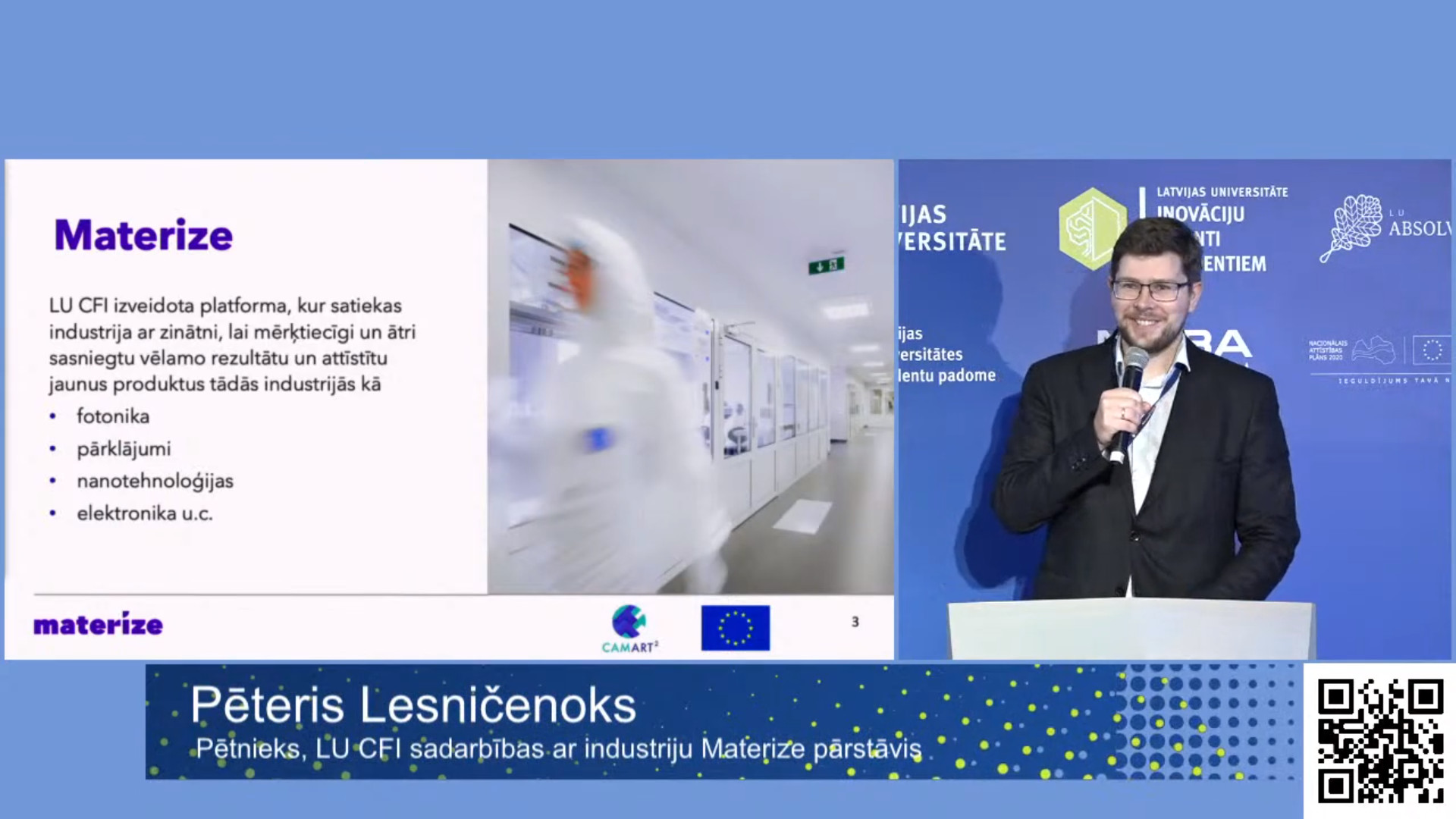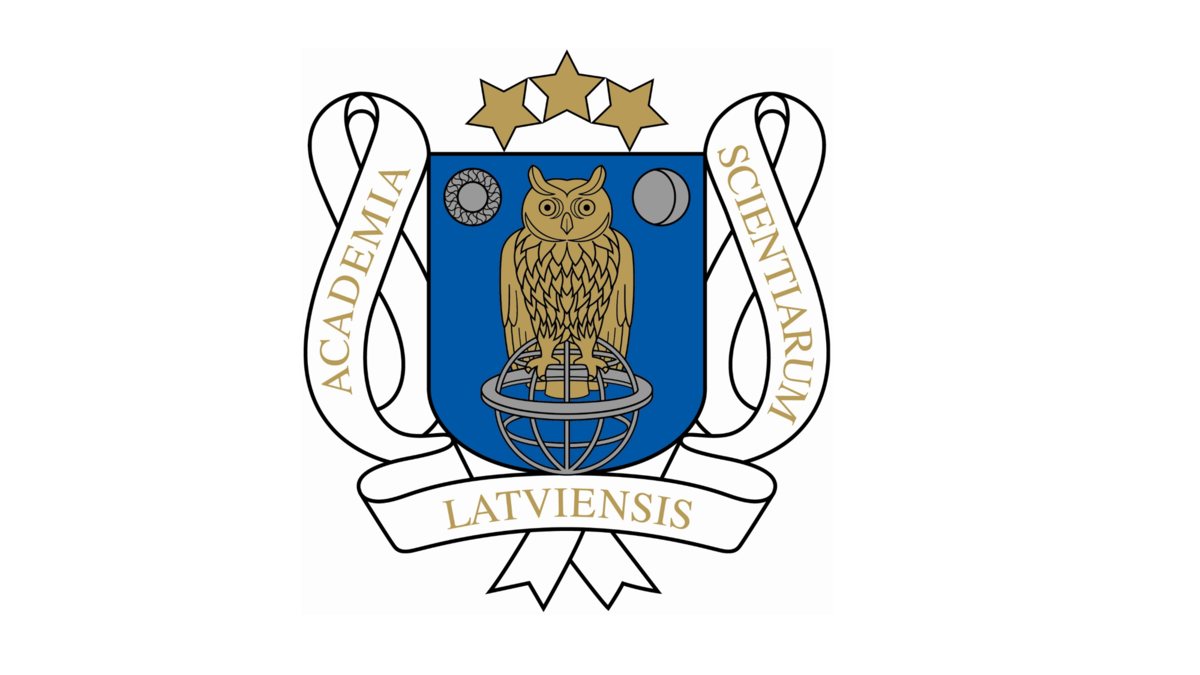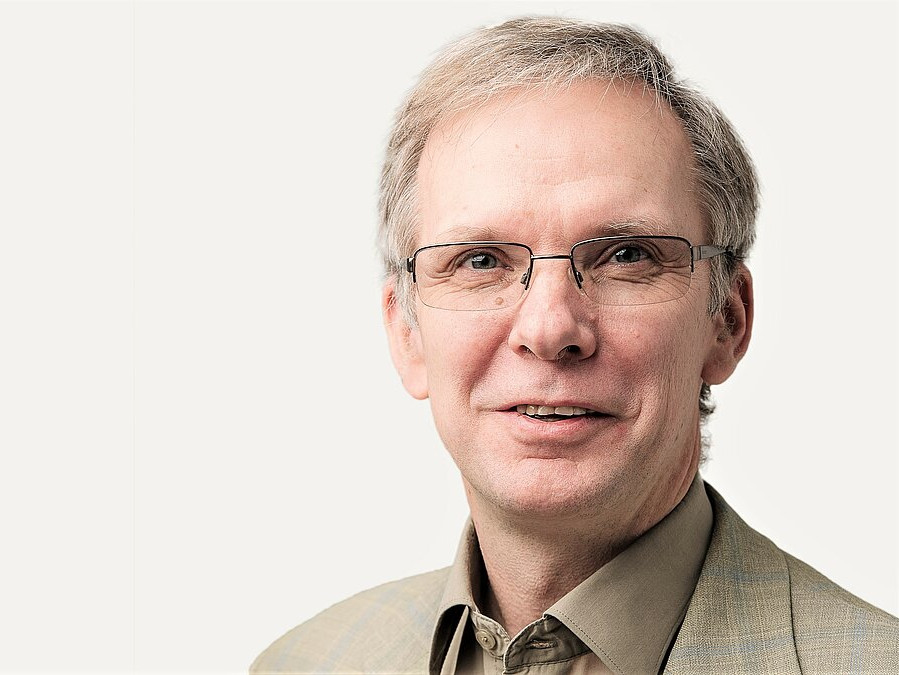This year, the annual New Technologies and Innovations Days themed “Ability, opportunity - sustainable innovations” organized by the University of Latvia took place on September 23 and 24. One of the activities of the versatile program was the Knowledge Agora, giving researchers the opportunity to talk about their achievements, as well as students to present their innovative ideas, which have been developed in hackathons, incubators and think tanks this season.
In 2021, the topics of the presentations were divided into four sections: 1) natural sciences, 2) humanities and arts, 3) social sciences, and 4) medical and health sciences. Researcher from ISSP UL’s Laboratory of Materials for Energy Harvesting and Storage and representative of MATERIZE P. Lesničenoks introduced the innovation opportunities for collaboration with industry offered at the ISSP UL, namely MATERIZE cooperation platform.
During the presentation, P. Lesničenoks emphasized that the platform aims at reaching not only foreign companies, but also at becoming more visible in Latvia. Platform’s main activities include hydrogen energy, waste recycling, energy harvesting and storage, manufacturing and mechanical engineering, materials science for construction purposes, health technologies, agriculture, coatings, full cycle of OLED development, defense sector, and natural sciences. P. Lesničenoks also told the audience about the research infrastructure and equipment available at the ISSP UL offering services for characterization of the properties of solid-state materials.
The New Technologies and Innovation Days highlighted the latest discoveries in technologies and science in an exciting, user-friendly way, thus fostering public awareness and interest in study, research, and innovation.
The Knowledge Agora is an opportunity for researchers to present and engage a wider audience with innovative research into new technologies, processes and quality of life in 6 minutes. This year, the Knowledge Agora featured almost 60 different researches on the development of the microorganism collection, the solar system, nanomaterials, the bioeconomy, magnetic accelerators, material memory, gene data, as well as solutions in the fields of demography, education, ecosystems and medicine.



